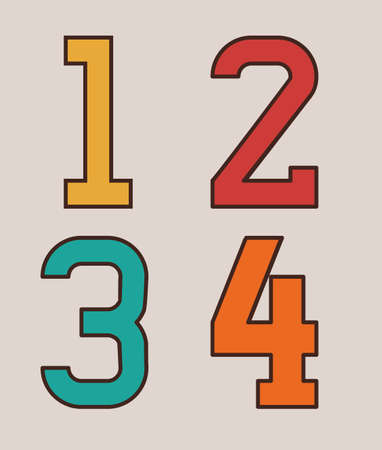Understanding Dreams About Loss
Dreams about loss are more common than you might think. Whether it’s dreaming about losing a loved one, misplacing something valuable, or missing out on an opportunity, these dreams can feel super real and leave us with some pretty intense emotions when we wake up. So what do these dreams actually mean? Let’s break it down in a way that’s easy to understand and totally relatable.
Why Do We Dream About Loss?
First off, dreaming about loss usually connects to our feelings and experiences in real life. Our minds use dreams as a way to process emotions—especially the tough ones like grief, anxiety, or fear of change. When something big happens (like moving away from home, ending a relationship, or losing someone close), your brain keeps working on those feelings even while you sleep.
Common Types of Loss Dreams
| Type of Loss Dream | What It Might Reflect |
|---|---|
| Losing Loved Ones | Fear of abandonment, unresolved grief, or anxiety about relationships. |
| Losing Possessions | Worries about security, changes in life circumstances, or feeling unprepared. |
| Losing Opportunities | Regret over missed chances, self-doubt, or pressure to succeed. |
How These Dreams Connect to Real Life Emotions
Dreams about loss aren’t just random—they’re often tied directly to how we’re feeling when we’re awake. For example, if you’ve recently gone through a breakup or lost a friend, your mind might replay those feelings as a dream. Or if you’re worried about not living up to expectations at work or school, you might dream about failing a test or missing an important event.
Sometimes these dreams help us “practice” dealing with hard emotions in a safe space. Your brain is basically saying, “Hey, let’s work through this together!” Even though they can be unsettling, these dreams are normal and can actually help us process what’s going on in our lives.
2. Common Dream Symbols of Grief
Dreams about loss and grief can feel super real and sometimes even confusing, but certain images or scenarios pop up a lot when we’re working through tough emotions. Let’s break down some of the most common symbols you might notice in your dreams if you’re dealing with grief.
Funerals and Memorials
Dreaming about funerals or memorial services isn’t unusual, especially after losing someone important. In American culture, funerals are a big part of saying goodbye and honoring loved ones. If you dream of attending a funeral (even your own), it might mean you’re processing what that loss means for you personally or trying to find closure.
Saying Goodbye
Goodbyes in dreams can show up as heart-to-heart conversations, hugs, or even missed chances to say farewell. These dreams may signal regrets or things left unsaid in real life. It’s totally normal for your brain to use dream-time to work out those lingering feelings.
Losing Personal Items
Ever dreamt about losing your keys, phone, or something else important? Sometimes these dreams aren’t just about the stuff—they can symbolize deeper feelings of losing control, connection, or security after a major loss.
Common Grief Dream Symbols Table
| Dream Symbol | What It Might Mean | Real-Life Example |
|---|---|---|
| Funeral | Processing loss; searching for closure | Dreaming about attending a loved one’s service |
| Saying Goodbye | Unspoken words; unfinished business | Wishing you could have one last conversation |
| Losing Items | Anxiety over change; fear of forgetting | Losing your wedding ring in a dream after a spouse passes away |
| Crying or Tears | Letting out bottled-up emotions | Tears that feel overwhelming but freeing in the dream |
| Empty Rooms or Houses | Feeling alone; missing someone’s presence | Walking through an empty childhood home |
Why These Dreams Happen
Your mind uses dreams as a safe space to explore emotions that might be too tough to handle during the day. If any of these symbols sound familiar, know that you’re not alone—and it’s completely normal to have these kinds of dreams while grieving.

3. Cultural Perspectives on Mourning
When it comes to dreams about loss and grief, American culture has a unique way of shaping how we process these feelings—both in our sleep and in our daily lives. Grief might be universal, but the way we deal with it is definitely influenced by the world around us. Let’s take a closer look at how American customs, values, and attitudes can affect our journeys through mourning.
How Does American Culture Influence Grieving?
In the United States, there’s often an emphasis on “moving forward” and “staying strong.” People are sometimes encouraged to keep their emotions private or bounce back quickly after a loss. This can show up in dreams as well—some folks might dream about being left behind or struggling to express their feelings because, in real life, they’re trying to hold everything together.
Common American Attitudes Toward Grief
| Attitude or Value | How It Shows Up in Life | Possible Dream Themes |
|---|---|---|
| Self-Reliance | Trying to handle grief alone | Dreams of isolation or carrying heavy burdens |
| Optimism & Moving Forward | Pushing for quick recovery after loss | Dreams of running, chasing, or leaving something behind |
| Privacy & Independence | Keeping emotions to oneself | Dreams where you can’t speak or are unheard |
| Cultural Diversity | Mourning traditions from various backgrounds blending together | Dreams featuring mixed symbols and rituals |
The Role of Support Systems in America
While some Americans may lean toward independence, support groups, therapy sessions, and community gatherings (like memorial services or even online forums) play a big part in helping people cope. These connections can shape your dreams too—maybe you’ll see loved ones offering comfort or relive moments from group ceremonies in your sleep.
Media and Modern Life: Changing How We Grieve
The rise of social media and digital memorials also changes how Americans experience mourning. Sharing memories online, posting tributes, or even participating in virtual support groups can influence both our waking thoughts and what surfaces while we dream.
Understanding these cultural perspectives doesn’t just help explain your dreams—it can also make you feel less alone in your journey through loss. Every person’s path is different, but knowing how your surroundings shape your experiences is a good step toward healing.
4. Dreams as a Tool for Healing
When you’re going through loss or grief, dreams can be more than just random stories in your head—they can actually help you heal. Many people in the U.S. have found that understanding their dreams gives them a unique way to process tough emotions, say goodbye, and even find some peace during hard times. Let’s break down how interpreting dreams can support the mourning process and why it’s worth paying attention to what happens when you sleep.
How Dreams Help Us Process Pain
Dreams often reflect our deepest feelings, especially when we’re missing someone or something important. Sometimes, you might dream about talking to a loved one who’s passed away or reliving special moments with them. These dreams aren’t just memories; they’re ways for your mind to sort through sadness and pain.
Common Grief-Related Dreams and Their Meanings
| Type of Dream | Possible Meaning | How It Helps |
|---|---|---|
| Saying goodbye in a dream | Your subconscious is seeking closure or acceptance | Makes letting go feel a bit easier |
| Reliving past memories | Your mind is holding onto happy times for comfort | Reminds you of love and good moments shared |
| Loved one giving advice | You’re searching for guidance or reassurance | Provides emotional support when you need it most |
| Losing something important (not a person) | Anxiety about change or moving on | Helps you recognize fears and work through them |
Finding Closure Through Dream Interpretation
Interpreting your dreams doesn’t have to be complicated. Think of it as having a conversation with yourself about what you really feel inside. Here are some simple steps to get started:
Step-by-Step: Using Dreams for Healing
- Keep a Dream Journal: Write down your dreams as soon as you wake up. Even if they seem weird or sad, put it all on paper.
- Look for Patterns: Are there recurring themes? Maybe you keep seeing the same person or place.
- Ask Yourself What Stands Out: Is there an emotion or event in the dream that feels extra strong?
- Talk About It: Share your dreams with a trusted friend, therapist, or support group—sometimes saying it out loud helps make sense of it.
- Give Yourself Grace: Remember, there’s no right or wrong way to grieve. Your dreams are personal to you.
The Role of Dreams in American Mourning Culture
A lot of Americans find comfort in faith, family traditions, and community when coping with loss—and dreams are part of that journey too. Some people see dreams as messages from loved ones or signs that healing is happening over time. Whether you take a spiritual view or just see dreams as your brain doing its thing, using them as a tool for recovery is totally valid.
5. When to Seek Support
Dreams about loss and grief can be incredibly powerful, and sometimes they stick with us long after we wake up. Its totally normal to have these dreams, especially when youre missing someone or dealing with a big change. But if you notice certain patterns or feelings that just wont go away, it might be time to reach out for some extra support—whether thats talking to your friends, leaning on family, or connecting with a mental health professional.
Recognizing the Signs: Is It Time for Extra Help?
It can be tricky to know when your dreams are just part of the healing process and when theyre a signal that you might need more support. Here are some signs to watch for:
| Sign | What It Might Mean |
|---|---|
| Recurring Nightmares | You keep having distressing dreams about loss night after night. |
| Trouble Sleeping | Your dreams are making it hard to fall asleep or stay asleep. |
| Feeling Stuck in Grief | You cant move past certain emotions, even during the day. |
| Withdrawing from Others | You avoid friends and family because of how your dreams make you feel. |
| Changes in Mood | You notice more sadness, anxiety, or irritability than usual. |
Who Can You Turn To?
If these signs sound familiar, remember—you dont have to handle everything by yourself! Here are some options for getting support:
- Friends & Family: Sometimes just talking things out with someone who cares can make a big difference.
- Support Groups: Many communities (and even online spaces) have groups where people share their experiences with grief and loss.
- Mental Health Professionals: Therapists or counselors can help you process tough emotions and find healthy ways to cope. In the U.S., its common—and totally okay—to reach out for this kind of help!
How to Start the Conversation
If youre not sure how to ask for support, heres a simple way to get started:
- “Ive been having a lot of dreams about my loss lately, and its really weighing on me. Can we talk about it?”
- “I think I might need some extra help dealing with my feelings—do you know any good counselors or support groups?”
A Quick Reminder
Your feelings matter. Dreams about loss and grief are nothing to be ashamed of, and reaching out is a sign of strength—not weakness. If your dreams feel overwhelming or start affecting your daily life, its totally okay (and very American!) to seek out the support you deserve.
6. Practical Steps Toward Recovery
When you have dreams about loss and grief, it can feel heavy and confusing. But those dreams can also be a surprising source of healing if you know how to work with them. Here are some simple, down-to-earth steps you can take to use what you learn from your dreams to foster real-life recovery, resilience, and personal growth.
Journaling Your Dreams
Keep a notebook or use a notes app by your bed. When you wake up, jot down what happened in your dream, how you felt, and anything that stands out. Over time, patterns might emerge that help you understand what’s really on your mind or heart.
Sample Dream Journal Entry
| Date | Dream Description | Feelings | Possible Message |
|---|---|---|---|
| 6/10/2024 | Losing keys, searching everywhere | Anxious, frustrated | Feeling out of control; fear of losing something important |
| 6/12/2024 | Talking to a loved one who passed away | Comforted, sad but peaceful | Longing for connection; finding closure |
Talk About It With Someone You Trust
If a dream keeps coming back or feels especially strong, share it with a friend, family member, or therapist. Sometimes just saying it out loud helps make sense of things and reminds you that you’re not alone in what you’re going through.
Create a Comforting Ritual
Your dreams may be nudging you to do something meaningful in real life. Maybe light a candle for someone you miss, write them a letter (even if they’re gone), or visit a place that brings comfort. These small rituals can bring healing and honor your feelings.
Practice Self-Compassion and Patience
Mourning is different for everyone, and there’s no timeline. If your dreams are tough or emotional, remind yourself that it’s okay to feel whatever comes up. Treat yourself with the same kindness youd offer a friend in need.
Coping Strategies Table
| Strategy | How It Helps | Easy Ways to Try It |
|---|---|---|
| Mindful Breathing | Reduces anxiety and grounds you after an intense dream | Sit quietly and focus on slow breaths for 2–5 minutes in the morning or before bed |
| Creative Expression | Lets you process feelings from dreams without needing words | Draw, paint, write poetry, or listen to music inspired by your dream mood |
| Movement & Exercise | Releases stress stored in the body from emotional dreams | A short walk outside or gentle stretching after waking up can shift your energy positively |
Look For Growth Opportunities In Your Dreams
Your subconscious might use dreams about loss to highlight areas where you’re ready to grow—like learning to let go, building resilience, or finding new sources of support. Notice any lessons or strengths that come up in your dreams and see how you might apply them in real life.


